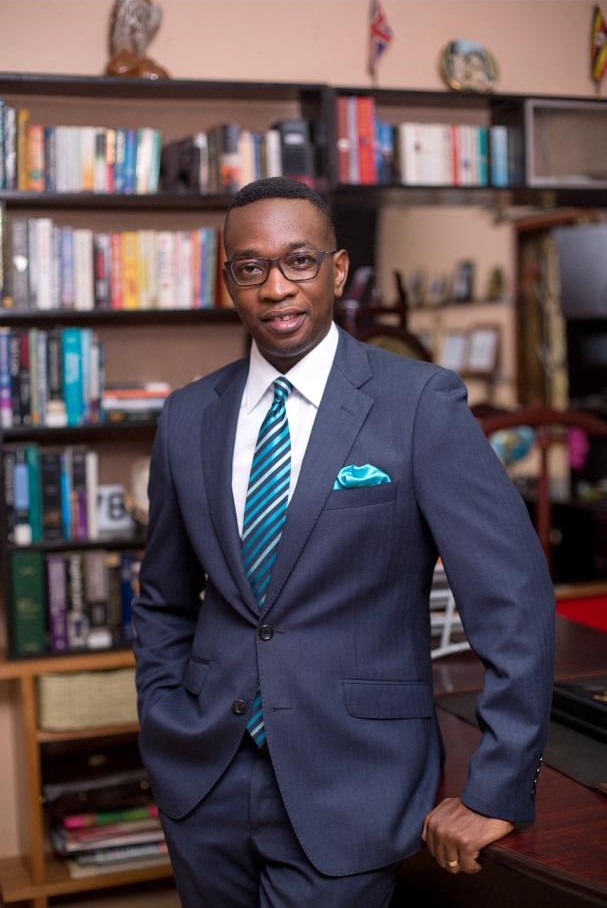By Sylver Kyagulanyi

The creative industry is by far one of the most obvious development opportunities in countries like Uganda that are characterized by unemployed youth; unbalanced opportunities in formal institutions; a poor education and family background, ,to mention but a few.
The performing arts top the list of the creative arts that have, without doubt, become a lifeline for many people and especially the youth who solely depend on these to earn a place in society; to live with basic decency; to inspire their peers; to uplift their near and sometimes extended families; to cut back on the possibility of leading criminal lives; and to keep hope alive for those seeking a breakthrough as they focus on the burning desire to shine through their art. Needless to add, it is a well-known fact that the population of the youth in Uganda is one of the highest in the world.
The Performing Arts basically encompass music,
dance and drama. Unlike, other professions that require formal qualifications,
the performing arts are informal gifts or talents from God. As such, if this
talent is not enhanced through a formal education system, it can also be
enhanced through practice and is therefore a legitimate alternative to formal
education that opens gates towards professions such as the Legal,
Medical, Architecture, Accountancy, Engineering and other professions.
For past generations, not only in Uganda, the Performing arts were frowned upon and ridiculed in the perception that they were indulgences for the ‘lesser’ men and women. For Uganda, in particular, even those that sought to formally study the graduate course “ MUSIC, DANCE AND DRAMA” met societal mockery when the course code-named ‘MDD’ popularly got to be known as “ MUSSIRU DDALA DDALA” which literally means ‘very very stupid’.
Currently, the tables have in many aspects turned in favour of some performing artists, turning them into societal leaders; earning them wealth and significance in society. This is the substantive proof that the aforementioned ridicule of performing arts is misconceived and sheer ignorance. Nonetheless, the vestiges of such ridicule are still evident.
Many years ago, much of the developed world began to appreciate the value of the performing arts. It then began the exploitation of the performing arts through policy geared to develop them as a major development sector subsequently contributing greatly to their GDP and enhancing their foreign policy. This was the birth of the knowledge-based economy. Sadly, Uganda has remained cold, unbothered and unresponsive for the most part. It is commendable that Uganda has favourably new laws that address the knowledge-based economy, but enforcement of these laws is still lukewarm. For example, in the last 12 years government has failed to effectively implement the Copyright and Neighbouring Rights Act, 2006, (CNRA), a situation that has helped neither the artist nor the State.
There is a spurious argument that copyrights, being private rights, ought to be protected privately and this argument in my opinion fails where government has not, in the least bit, provided a conducive environment for such private mandate to be realized.
The CNRA’s most obvious inadequacy, is in the lack of provision of a statutory body particularly cut to deal with the technicalities that the copyright based industries face. The fate of these industries is left untended at the table of Uganda Registration Services Bureau (URSB), a government body already overwhelmed with, businesses, documents and Intellectual Property (IP) registration under the Ministry of Justice and Constitutional Affairs as well as IP enforcement through the ill-prepared police.
The performing arts being drivers of culture (the reverse is also true) are also envisioned in the Uganda National Culture Policy under the stewardship of the Ministry of Gender, Labour and Social Development. However, the only statutory body created under the said policy is the Uganda National Cultural Centre (UNCC), whose mandate does not squarely favour all the performing arts and I must add that the Gender Ministry has failed in its role to supervise the UNCC, which is now moribund.
What prompted the writing of this paper is the apparent proposed regulations by the Ministry of Gender, Labour and Social Development.
The said regulations purport to be under “THE STAGE PLAYS AND PUBLIC ENTERTAINMENTS ACT CAP. 49”. This is an Act that came into force in 1943 and is among the many laws that ought to be repealed as they grossly contradict the 1995 Constitution. This particular Act aimed to curtail freedom of expression and was tailored to suit the colonial government at the time of its enactment. It therefore has no place in a free Uganda that is currently surrounded by a better appreciation of the growth of creative practice in the knowledge-based economy. Uganda is also currently in the process of passing its Intellectual Property Policy (which addresses the performing arts), validated in April 2017, and would therefore be going very many steps backwards with gagging creativity though such purported regulations.
A close scrutiny reveals that the purported regulations are in direct conflict with the Act that they are meant to be drawn from. For instance, provisions in the Act show that it is meant to licence theatres and not performing artists. It is on that basis that the ‘licensing authority’ as provided in the Act means the council of a city or municipality or the council of a town in which a theatre is situated and the like.
Furthermore, the Permits envisioned in the Act were for the particular play or stage act and not for the performing artists as the proposed regulations provide. Therefore, even then no performing artist was required to have a licence before he or she could be allowed to perform in theatre. In addition, the Act expressly provides that the Broadcasting Council established under the Electronic Media Act is the one to grant the said permits and not the National Culture Forum as provided in the proposed regulations.(Bearing in mind that the aforementioned Act was repealed by the Uganda Communications Commission Act of 2013).
Legally, the procedure that the Ministry of Gender, Labour and Social Development has preferred in regard to the said regulations is irregular and unconstitutional. This is because it is attempting to make a Statutory Instrument without an enabling Statute, which situation would fit the figurative – putting the cart before the horse.
It is apparent that the proposed regulations exhibit profound ignorance on the part of the drafting team regarding the current trend in Uganda’s knowledge-based economy as well as growth and significance of the performing arts. The said Regulations portray a clear offence of the provisions of the 1995 Constitution of Uganda and recklessness in as far as they affront natural justice and socio-economic development.
In conclusion, the act of regulation in itself may be necessary, but it should flow from legality and logic.
In recommendation, assuming that we are all development driven and that the said regulations have not been prepared in bad faith or fashioned to some selfish end. The government should focus on implementing the CNRA and making the necessary amendments for the mutual benefit of the performing artists and the State. The amendments may include a copyright Board or a copyright tribunal to meet the esoteric nature of copyright law. More Regulations can flow from the CNRA to govern the creative industry and these should be benchmarked on the ideal of development, both social and economic.
Instead of finding new laws to deal with wrongful
elements in the performing artists, the existing
legislations such as the Public Order Management Act, 2013 and the Penal Code Act (Cap.120), should be
found sufficient to avoid the unnecessary and unconstitutional duplicity.
Lastly, the Ministry of Gender, Labour and Social
development, should focus on empowering the
Performing Arts Associations through the National Culture Forum and foster the
necessary rapport for future initiatives. Moreover, the culture policy may be
amended to provide for an “Arts Council” for the development of the Arts
including funding Artistic enterprises. In this way, the Government will be
seen to walk its talk in supporting creativity and innovation.
THE AUTHOR IS A UGANDAN MUSICIAN, LAWYER AND AN ADVOCATE OF THE HIGH COURT OF UGANDA.
sylver@sikia.org






Such an authentic information of national importance and progress.